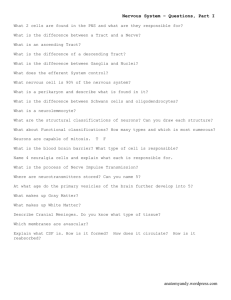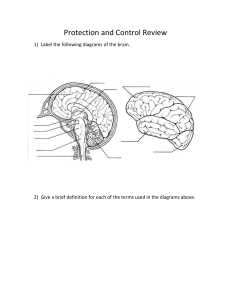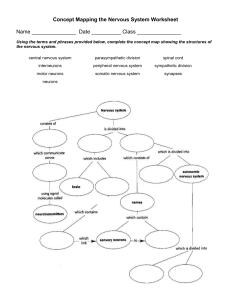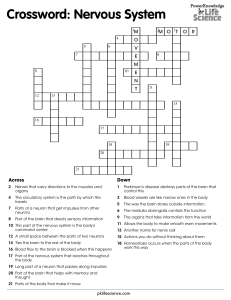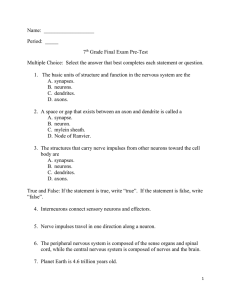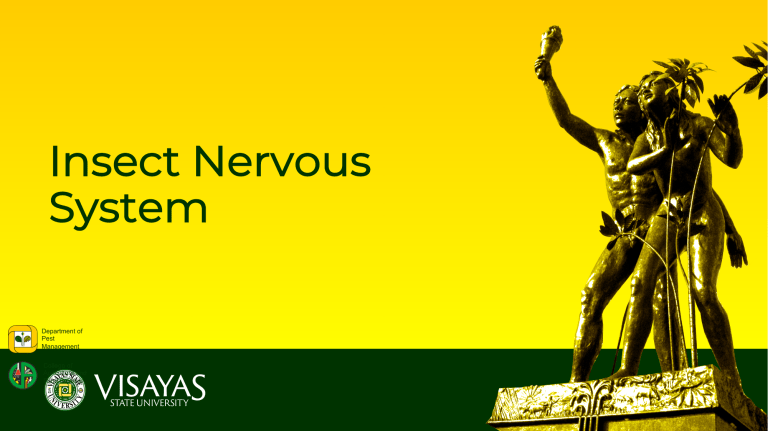
Insect Nervous System Department of Pest Management College of Agriculture and Food Science Structure of the Nervous System • The central nervous system • insect CNS consists of the brain and ventral nerve cord Department of Pest Management College of Agriculture and Food Science • Protocerebrum • connects to the eyes • allows the insect to detect light, movement and also see • Deutocerebrum • Connects to the antennae • Used to collect information on tastes, smells, temperature, humidity and other sensations • Tritocerebrum • Connects the upper tip of the insect’s mouth and process information from other lobes Structure of the Nervous System • The central nervous system Department of Pest Management College of Agriculture and Food Science • Ganglia- nerve centers consisting of cell bodies of interneurons and motor neurons aggregated with fibers interconnecting all types of nerve cells Neuron • Nerve cells, or neurons, are the cellular building blocks that make up the nervous system • capable of integrating information • undergoing excitation • transmitting the information by electrical and short-range chemical signaling (action potential) Department of Pest Management College of Agriculture and Food Science • The chemical signaling occurs via the synapses that connect with other neurons to form more complex neural networks. • Dendrites bring information to the soma • Axons take information away from the soma. Neurons are usually divided into three categories, depending on the direction of information • Afferent (sensory) neurons — these bipolar or multipolar cells have dendrites that are associated with sense organs or receptors. They always carry information toward the central nervous system. • Efferent (motor) neurons — unipolar cells that conduct signals away from the central nervous system and stimulate responses in muscles and glands. • Internuncial (association) neurons — unipolar cells (often with several collaterals and/or branching axons) that conduct signals within the central nervous system. Department of Pest Management College of Agriculture and Food Science
